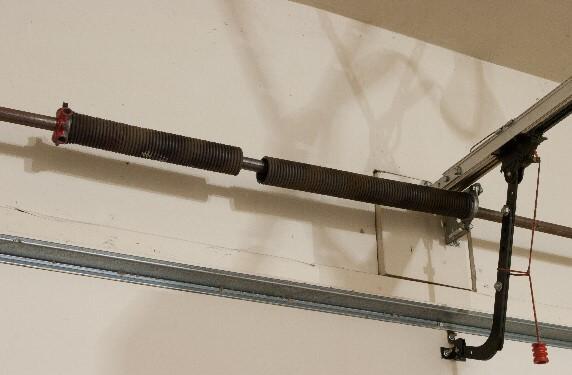How Long Should Garage Door Spring Last? Garage door springs play a crucial role in the smooth operation of your garage door. However, like any mechanical component, they have a finite lifespan. In this informative guide, we will explore the factors influencing the longevity of garage door springs and provide essential tips to ensure they last as long as possible.

Understanding the Lifespan of Garage Door Springs
The Essential Springs: A Primer
Garage door springs are responsible for counterbalancing the weight of the door, making it easier to open and close. There are two main types of springs – torsion springs, mounted above the garage door, and extension springs, located on the sides. Understanding their lifespan is essential for maintaining the overall functionality of your garage door.
Factors Influencing Lifespan
Several factors impact how long garage door springs last. Let’s delve into these key considerations:
- Usage Frequency: The more frequently you open and close your garage door, the more strain is placed on the springs.
- Quality of Materials: The quality of the springs themselves is a significant factor. High-quality, durable materials tend to have a longer lifespan.
- Maintenance Practices: Regular maintenance, including lubrication and inspections, can contribute to the longevity of garage door springs.
- Climate and Environmental Conditions: Extreme temperatures and environmental factors can affect the performance of garage door springs over time.
How Long Should Garage Door Springs Last: The Numbers
While the lifespan of garage door springs can vary based on the factors mentioned earlier, there are general guidelines to consider. Torsion springs typically last between 10,000 to 20,000 cycles, while extension springs may have a lifespan of around 10,000 cycles. A cycle is counted each time the garage door opens and closes.
Read too: Why Is My Chamberlain Garage Door Opener Opening By Itself? Decoding the Mystery
Tips for Prolonging the Lifespan of Garage Door Springs
Now that we understand the average lifespan, let’s explore actionable tips to maximize the longevity of your garage door springs.
- Regular Inspection:
- Perform visual inspections of the springs regularly.
- Look for signs of wear, rust, or any abnormalities.
- Address any issues promptly to prevent further damage.
- Lubrication:
- Apply a silicone-based lubricant to the springs.
- Lubricate all moving parts, including pulleys and rollers.
- This reduces friction and minimizes wear and tear.
- Balancing the Door:
- Ensure your garage door is properly balanced.
- An imbalanced door puts extra strain on the springs.
- Seek professional assistance if needed for adjustments.
- Professional Maintenance:
- Schedule regular professional maintenance.
- Experts can identify potential issues before they become major problems.
- Professional maintenance may include tension adjustments and part replacements.
- Temperature Considerations:
- Extreme temperatures can affect the performance of garage door springs.
- In regions with harsh climates, consider insulated garage doors to moderate temperature fluctuations.
Conclusion: Nurturing the Heart of Your Garage Door
In conclusion, understanding how long garage door spring last should last is crucial for homeowners seeking to maintain the functionality of their garage doors. By implementing regular maintenance practices and being mindful of factors that influence spring lifespan, you can extend the life of these essential components. Remember, when in doubt, consult with professionals to ensure the safety and optimal performance of your garage door.
Preserve the heart of your garage door – its springs – and enjoy a smooth and reliable operation for years to come.



Leave a Reply